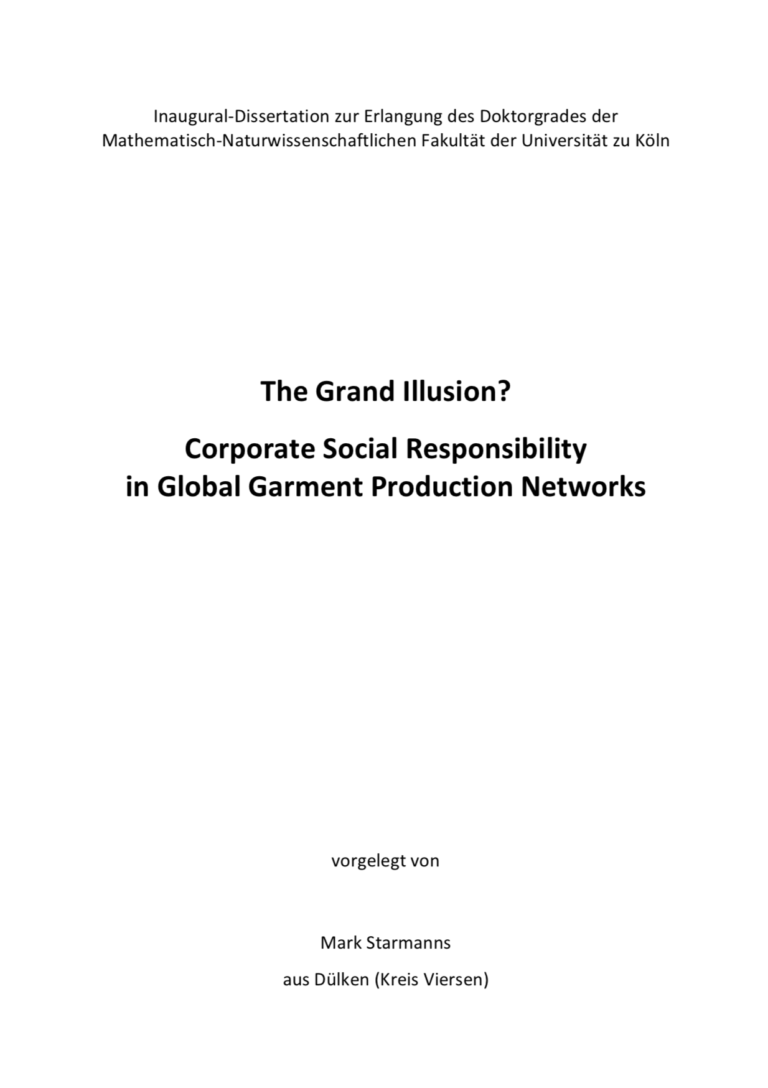This PhD aims to generate a better understanding of corporate social responsibility (CSR) in global production networks. CSR is an umbrella term that deals with voluntary activities undertaken by companies and that indicate an ethos to act responsibly in society. This research focuses on CSR practices that aim towards improving working conditions in outsourced production factories by implementing so-called social standards, which often derive from core norms of the International Labour Organization and intend to secure decent working conditions. While companies claim that they take responsibility for workers via CSR practices, civil society actors like the Clean Clothes Campaign criticize CSR as public relations exercise as companies still fail to take ‘sufficient’ responsibility. Based on this contradiction this PhD aims to reveal the political contestation surrounding CSR and the struggles over CSR between companies and civil society organizations claiming to represent workers in global production networks. The main questions are: What practices do companies use to take responsibility for workers in outsourced production, how do they legitimize these practices, and how are these approaches contested?

